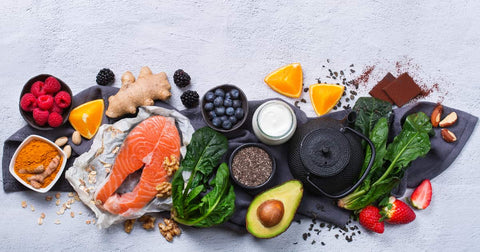Pineapple, the darling of fruit salads and tropical cocktails, boasts a reputation for aiding digestion. But can this juicy delight actually make you poop? Let's unravel the science behind this claim and explore how pineapple might fit into your quest for digestive regularity.
Why Does Pineapple Make You Poop? (Sometimes)

Pineapple offers several components that could contribute to easing constipation:
- Fiber Power: Pineapple, especially when eaten fresh, is a decent source of dietary fiber. Fiber adds bulk to your stool, helping it move more easily through your digestive tract.
- Bromelain: A Natural Digestive Aid: This enzyme found in pineapple may help break down proteins in your gut, aiding digestion and easing constipation.
-
Hydration Helper: Pineapple is mostly water, and staying hydrated is essential for preventing and easing constipation.
- Sorbitol: This natural sugar alcohol, found in small amounts in pineapple, can have a mild laxative effect when consumed in larger quantities.
Pineapple Juice for Constipation: A Juicy Debate
While eating fresh pineapple offers fiber and bromelain benefits, the juice is less effective.
- Fiber Loss: Juicing removes most of the fiber from the fruit, making it less impactful for constipation.
- Sugar Spike: Pineapple juice is often high in natural sugars, which can be dehydrating in large amounts.
How Much Pineapple Do I Need? Finding the Right Dose

There's no magic number. It depends on your individual tolerance and how your body reacts to pineapple.
- Start Small: Try incorporating a serving of fresh pineapple (about a cup) or a small glass of juice into your daily diet.
- Observe: Note any changes in your bowel movements. If you experience discomfort like diarrhea or gas, reduce the amount.
- Gradual Increase: If you find pineapple helpful, you can slowly increase your intake.
- Hydration is Key: Always drink plenty of water alongside pineapple to enhance its digestive benefits.
Can Pineapples Help With Chronic Constipation?
Pineapple alone might not be the solution for chronic constipation, which can stem from various factors like:
- Food Intolerances: Some people have sensitivities to certain foods that trigger digestive issues, including constipation.
- Medical Conditions: Underlying health issues can also contribute to chronic constipation.
Food Intolerance Testing: Unlocking the Root Cause

If you struggle with persistent constipation, our at-home food intolerance test can offer valuable insights. It can help identify specific foods that trigger your digestive issues, allowing you to tailor your diet for better gut health and relief from constipation.
Important Note:
- Pineapple's acidity can worsen heartburn or acid reflux for some individuals.
- Always consult your doctor if you experience chronic or severe constipation.
Frequently Asked Questions:
1. Is canned pineapple as effective as fresh pineapple for constipation relief?
Canned pineapple can still be helpful, as it retains some fiber content. However, fresh pineapple is preferable due to its higher fiber and bromelain levels. If using canned, choose one packed in water or its own juice (not syrup).
2. Can I drink pineapple juice on an empty stomach to relieve constipation faster?
Potentially, yes. Some people find that consuming pineapple juice on an empty stomach enhances its effect due to quicker digestion. However, this can lead to stomach upset for others. Experiment to see what works best for you.
3. If pineapple doesn't work, does that mean I have a food intolerance?
Not necessarily. While food intolerances can contribute to constipation, many other factors are at play (medications, dehydration, etc.). If pineapple doesn't help, consult your doctor to explore other potential causes.
4. Are there other fruits that help with constipation besides pineapple?
Yes! Pears, apples, and berries are excellent choices. They offer fiber, hydration, and even prebiotic benefits for your gut.
5. I heard bromelain can help with inflammation. Does this mean pineapple is anti-inflammatory?
Yes, bromelain is known for its anti-inflammatory properties. While more research is needed on the effects of pineapple itself, incorporating it into a balanced diet rich in anti-inflammatory foods can be beneficial for overall health.
6. Is it better to eat the core of the pineapple for constipation?
The core contains the most bromelain, so it's beneficial to consume if you can tolerate the tougher texture. If not, just eating the flesh is still helpful.
7. Can pineapple juice help prevent constipation in the first place?
Consuming pineapple juice or fresh pineapple regularly can certainly contribute to healthy digestion and prevent constipation by adding fiber and fluids to your diet. However, it's not a guaranteed preventive measure for everyone.


.png?v=1737390083)
.png?v=1737187409)


